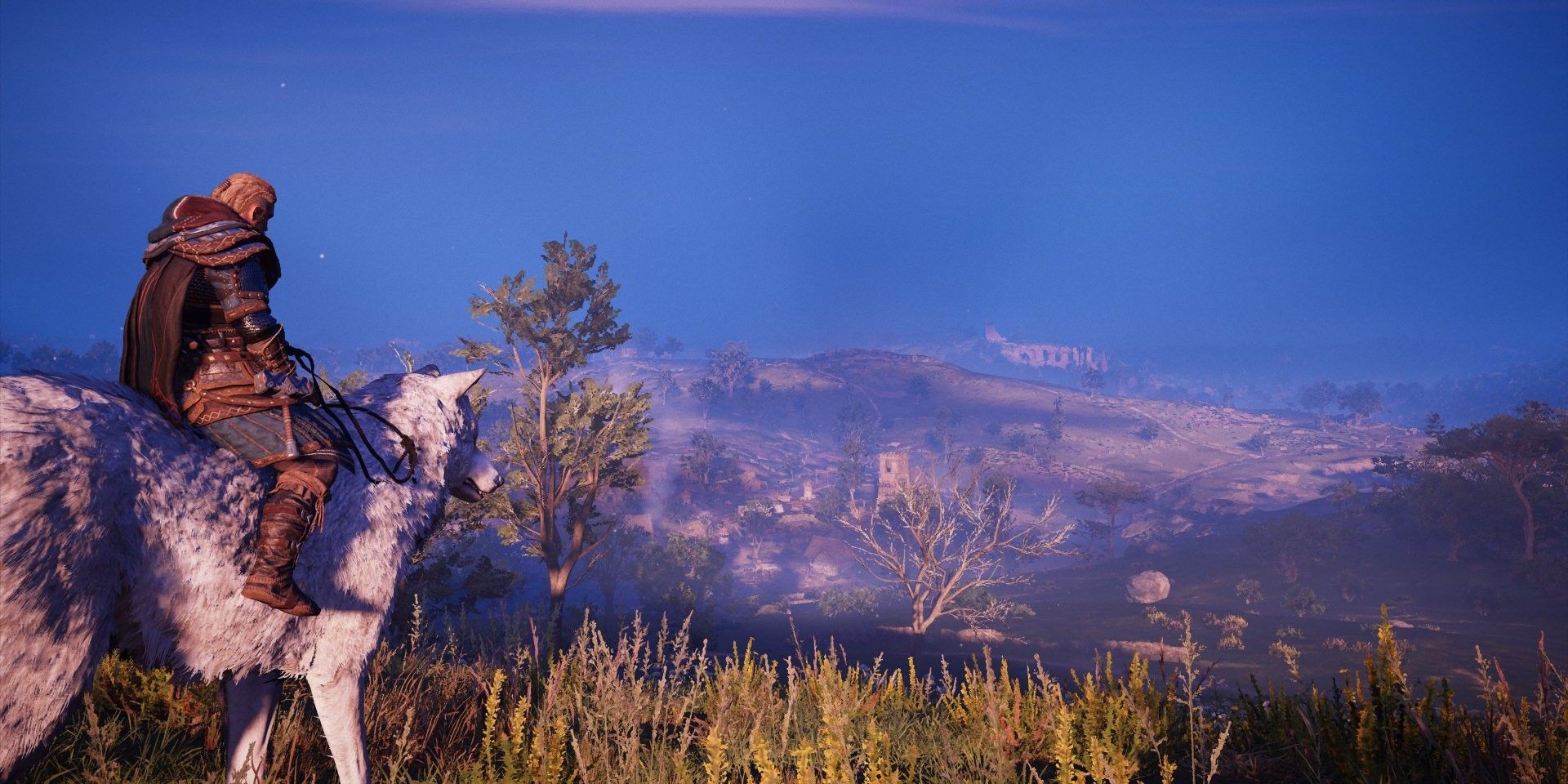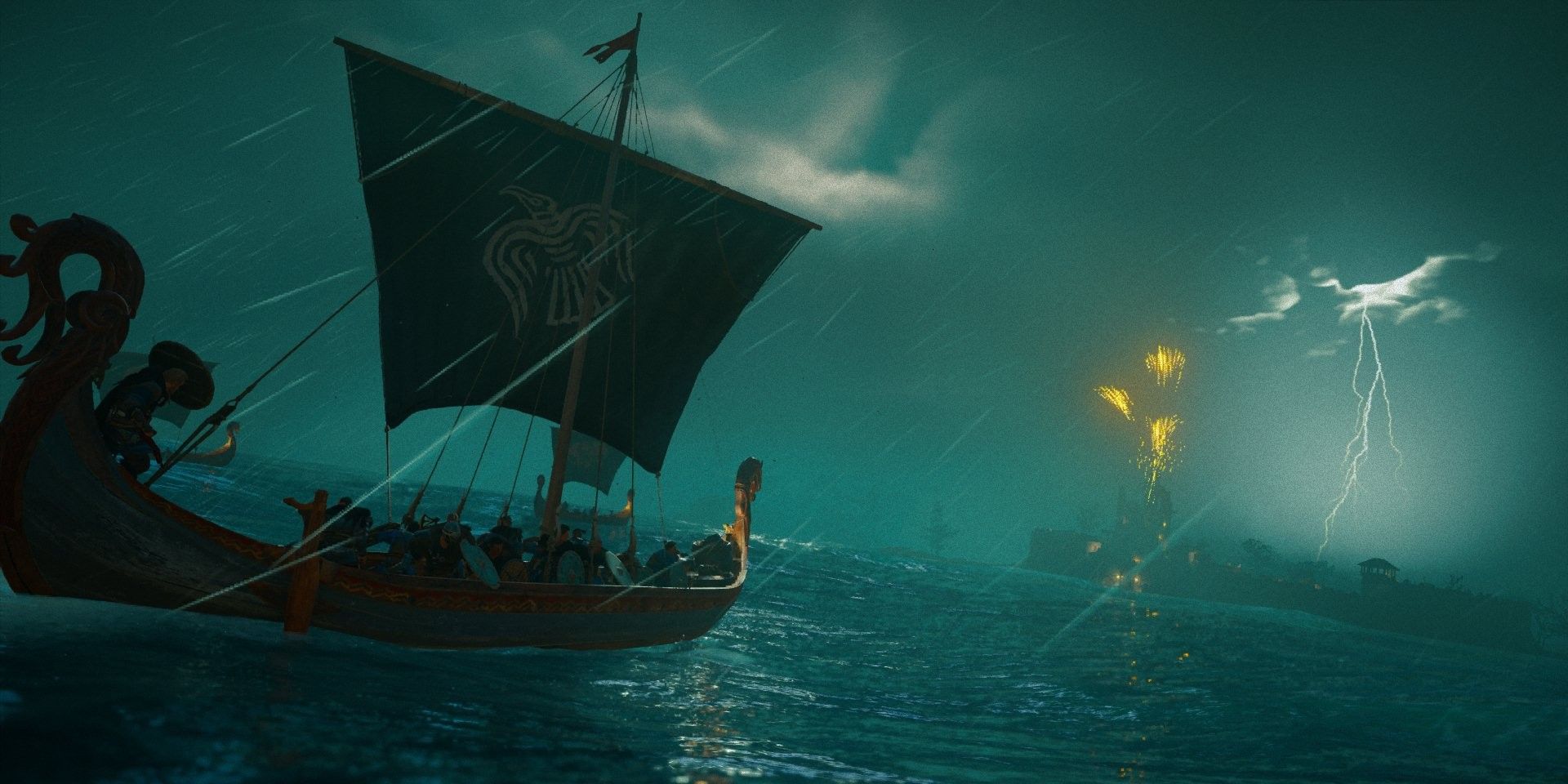
The passage of time is a tricky concept to handle in open-world game stories, and it's no different for Assassin's Creed Valhalla. Open-world games are designed to give players the freedom to explore as they wish, as opposed to following a linear story, where it's much easier to control the context of time. Assassin's Creed Valhalla's isn't clear in how it shows time passing to players, which is ultimately a minor issue in the telling of Eivor's story.
Assassin's Creed Valhalla tells the epic tale of Eivor's journey to England and of all the challenges faced along the way. Between establishing a settlement, partaking in the disputes of power within the various kingdoms, a Valhalla's side-trip to Vinland and a return to Norway, there's a lot going on within the game's story. There are scattered mentions of time periods throughout, but it never really feels like Eivor's journey is as long as the in-game timeline says it actually is.
As it turns out, Assassin's Creed Valhalla takes place over the course of several years. Upon a return to Norway, Sigurd says to Eivor that it's been years since they originally left after King Harald assumed control of their lands. It makes sense in hindsight, but it's difficult to grasp over the course of the game. There's one point in Assassin's Creed Valhalla's story where a group of people are angry with Eivor after months of not addressing something, and it feels awkward, as the player has just invested hours of their time pursuing that particular issue, with no indication of how long it's taking in game-time. It's the sort of dilemma that easily breaks immersion, leaving the player unsure of exactly what's going on.

Sure, there are some scattered mentions of time, and Valhalla's Viking settlement builds up over the course of the game, but it doesn't give the player an idea of how long it's actually taking. Seasons don't change, as the world remains stagnant, and there are no explicit time cards. But Assassin's Creed Valhalla did have an opportunity to convey the passage of time to the player through dialogue. After completing the story in a territory, Eivor is prompted to return to Ravensthorpe and inform Randvi of the outcome. This presents a perfect opportunity for the game to inform players of how much time has passed, be it through Randvi herself or another character within the settlement. A simple reference of the recent happenings at the settlement or how long it took Eivor to complete their task would have gone a long way in resolving this issue.
At the end of the day, this isn't a particularly huge problem. There are only a couple moments where the length of time is relevant, and there are enough clues throughout Valhalla for it to make sense to players once they put all the pieces together. The passage of time isn't going to ruin the game for anyone, but it's the kind of detail that can help elevate a game to a new level, if it's properly refined. Still, Assassin's Creed Valhalla is a long game with an even longer story, and that could have been better conveyed to players.
from ScreenRant - Feed https://ift.tt/2Lhq0Zf






0 Comments
Please don't use vulgar comments and avoid discussion on Religious matters